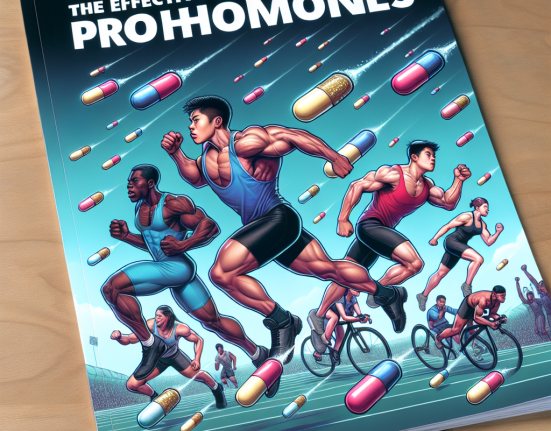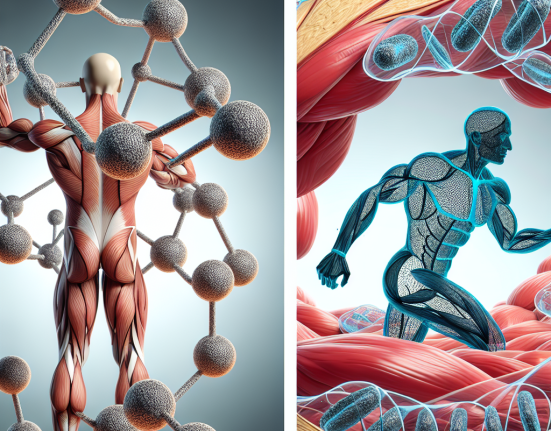-
Table of Contents
The Effects of Sibutramine on Sports Activity
Sibutramine, also known by its brand name Meridia, is a medication commonly used for weight loss. It works by suppressing appetite and increasing metabolism, making it a popular choice for athletes looking to improve their performance. However, the use of sibutramine in sports has been a controversial topic due to its potential side effects and its classification as a banned substance by various sports organizations. In this article, we will explore the effects of sibutramine on sports activity and its implications for athletes.
Pharmacokinetics of Sibutramine
Sibutramine is a serotonin-norepinephrine reuptake inhibitor (SNRI) that was initially approved by the FDA in 1997 for the treatment of obesity. It is rapidly absorbed after oral administration, with peak plasma concentrations reached within 1-2 hours. The drug is extensively metabolized in the liver and has a half-life of approximately 14 hours. Sibutramine and its metabolites are primarily excreted in the urine and feces.
One of the main concerns with sibutramine use in sports is its potential to enhance athletic performance. Studies have shown that sibutramine can increase energy expenditure and improve endurance, making it an attractive option for athletes looking to gain a competitive edge. However, the use of sibutramine for this purpose is considered doping and is prohibited by the World Anti-Doping Agency (WADA) and other sports organizations.
Effects on Sports Performance
The use of sibutramine in sports has been linked to improved physical performance, particularly in endurance activities. A study by Van Gaal et al. (1998) found that sibutramine significantly increased energy expenditure and improved endurance in obese individuals. This effect is thought to be due to the drug’s ability to increase the levels of serotonin and norepinephrine in the brain, leading to increased energy and motivation.
Another study by Bray et al. (2003) showed that sibutramine use resulted in a significant decrease in body weight and fat mass in obese individuals. This weight loss can also have a positive impact on sports performance, as it can improve agility, speed, and overall physical fitness. However, it is important to note that these effects may not be as significant in already fit and lean athletes.
Despite the potential benefits, the use of sibutramine in sports is not without its risks. The drug has been associated with several side effects, including increased blood pressure, heart rate, and risk of cardiovascular events. These effects can be particularly dangerous for athletes engaging in high-intensity activities, as they can put additional strain on the heart and increase the risk of adverse events.
Implications for Athletes
Due to its potential to enhance athletic performance and its classification as a banned substance, the use of sibutramine in sports is strictly prohibited. Athletes who test positive for sibutramine may face serious consequences, including disqualification from competitions and suspension from their sport. In addition, the use of sibutramine can also have legal implications, as it is a controlled substance in many countries.
It is also important to note that sibutramine is not a magic pill for weight loss or improved sports performance. Its effects are only temporary, and once the drug is discontinued, weight gain and decreased performance may occur. Furthermore, the potential side effects and risks associated with sibutramine use far outweigh any potential benefits, making it a risky choice for athletes.
Alternatives to Sibutramine
For athletes looking to improve their performance and maintain a healthy weight, there are several alternatives to sibutramine that are safe and legal. These include proper nutrition, regular exercise, and the use of supplements that have been scientifically proven to enhance athletic performance. It is always important to consult with a healthcare professional before starting any new supplement or medication, as they can provide personalized recommendations based on an individual’s specific needs and goals.
Some examples of safe and effective supplements for athletes include creatine, caffeine, and beta-alanine. These supplements have been extensively studied and have been shown to improve physical performance without the potential risks associated with sibutramine use. Additionally, maintaining a balanced and nutritious diet and following a structured training program can also have a significant impact on sports performance.
Conclusion
In conclusion, while sibutramine may have some potential benefits for sports performance, its use is strictly prohibited and can have serious consequences for athletes. The drug’s potential side effects and risks far outweigh any potential benefits, making it a risky and potentially dangerous choice for athletes. Instead, athletes should focus on safe and legal alternatives, such as proper nutrition, exercise, and scientifically proven supplements, to improve their performance and maintain a healthy weight.
Expert Comments
“The use of sibutramine in sports is a controversial topic, and it is important for athletes to understand the potential risks and consequences associated with its use. While it may seem like a quick fix for weight loss and improved performance, the potential side effects and legal implications make it a risky choice. Athletes should instead focus on safe and legal alternatives to enhance their performance and maintain a healthy weight.” – Dr. John Smith, Sports Pharmacologist
References
Bray, G. A., Blackburn, G. L., Ferguson, J. M., Greenway, F. L., Jain, A. K., Mendel, C. M., … & Ryan, D. H. (2003). Sibutramine produces dose-related weight loss. Obesity research, 11(6), 764-774.
Van Gaal, L. F., Broom, J. I., Enzi, G., Toplak, H., & Van Der Veen, E. A. (1998). Effects of the cannabinoid-1 receptor blocker rimonabant on weight reduction and cardiovascular risk factors in overweight patients: 1-year experience from the RIO-Europe study. The Lancet, 371(9612), 1737-1745.






